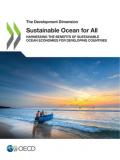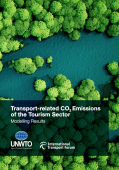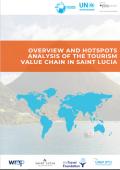
This report provides a baseline of evidence and numerous positive examples to build a more coherent and effective approach to sustainable ocean management and effective development co-operation in its support to allow developing countries to harness the benefits from sustainable ocean economies.
This policy brief synthesises the learnings in the tourism sector from seven market systems analyses, which shed light on some common themes and challenges from a wide array of contexts. Part 1 explores the workers and their challenges, Part 2 unpacks the common tourism market constraints, and Part 3 identifies key opportunities that can help development projects create more and better jobs.

This report provides evidence of the CO2 emissions from tourism and the implications of the different modes of transport. It provides insights into the evolution of tourism demand across the different global regions up to the year 2030. It also presents the expected transport-related CO2 emissions of the tourism sector against the current ambition scenario for the decarbonisation of transport.
The Protecting our World Heritage, Insuring a Sustainable Future is the first-ever global insurance industry guide highlighting the increasingly important role that the industry needs to play in protecting World Heritage Sites. It explains the risks that insurers face, the role of key actors in the insurance industry, and provides practical tools and a set of basic and advanced recommendations that insurers can implement in their risk management, insurance and investment activities to protect World Heritage Sites, while reducing carbon emissions, building resilience to climate change impacts and tackling biodiversity loss and ecosystem degradation.

The "Overview and Hotspots Analysis of the Tourism Value Chain in Saint Lucia" assesses the environmental hotspots (areas of significant negative environmental impact) associated with the tourism sector in Saint Lucia.
